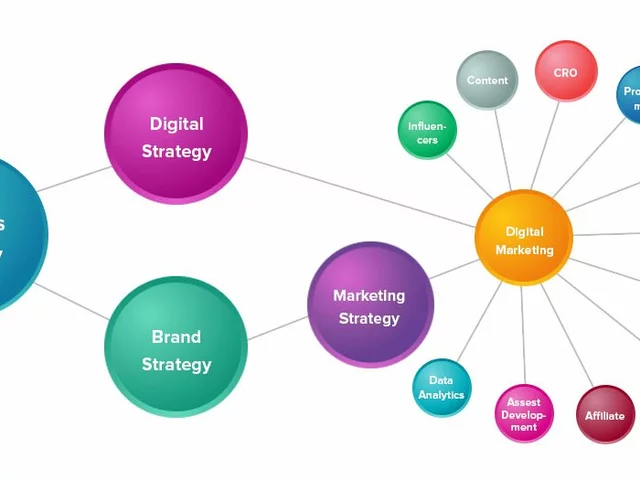A staggering 753,000 new businesses launched in the UK in 2024. That’s almost 2,000 a day. Most don’t survive the first three years. You want to be in the minority that not only survives but actually thrives. So, how do you move from saying ‘one day I’ll start my own business’ to actually doing it—and doing it well?
Making Your Business Idea Bulletproof
Here’s your first reality check: you don’t need the world’s most original idea. Some of the most successful businesses started with a twist on something that already existed. Monzo isn’t the first bank, Greggs isn’t the first bakery chain, and Amazon—well, it started with books. The trick? They did it better, or at least differently.
Start by figuring out what annoys you in daily life. That’s often where the best ideas come from. If you find yourself grumbling about how slow your favourite takeaway’s delivery is, there’s a business idea somewhere—speed it up, make the packaging more eco-friendly, offer late hours.
Testing your idea is critical—don’t just trust your gut. Set up a simple poll on your Instagram, ask mates, or go old school and chat to people in your local pub about your idea. Prefer the digital route? Spend a tenner on Facebook ads to see if anyone clicks. People love to say your idea is “great” just to be polite—don’t take it at face value until someone is ready to pay for it or use it.
Check what’s already out there. Jump onto Companies House (free, UK-specific) or just Google your idea. If you find lots of similar businesses, don’t panic—healthy competition usually means there’s demand. Your challenge? Figure out what you can do better, faster, or in a more customer-friendly way.

From Plan to Paperwork: Laying the Groundwork
If you’re serious about business, you can’t skip the planning part—yes, even if you hate writing. But plans don’t have to be 40 pages long. What really matters? Get clear on these things:
- What do you sell—product, service, or both?
- Who’s likely to buy it—and why would they bother?
- How much will it cost you to launch? (Be specific, include hidden costs like software, insurance, and late-night pizza)
- What’s your price? How much do you need to sell to break even?
Forget complicated forecasting formulas. Just jot down your numbers in a spreadsheet, so you can see what’s at stake. Remember, new businesses usually bleed money at the start, and you’ll need a buffer—most people underestimate how long it can take to get paid, or how quickly small expenses add up.
Now comes the bit most people dread: the legal stuff. If you want total control and plan to keep things simple, a sole trader is easy (and you can register online with HMRC in minutes). Going for a bigger business or want to limit your risk? Set up a limited company—Companies House does it online for £12, as of 2025. Chasing investment? Maybe look at forming a partnership with a mate or a few co-founders, but get your agreements in writing. I’ve seen friendships ruined and dreams derailed by not having this nailed down!
Don’t forget insurance. If you’re handling people’s data, giving advice, or opening a shop, skipping insurance can kill your business overnight if things go wrong. Look for public liability, professional indemnity, and employer’s liability insurance if you’ve got staff. Shop for quotes—don’t just accept the first one, and ask startup groups online for honest opinions.
Banking is getting easier. You don’t need to queue at a dusty branch anymore. Digital-first banks like Starling, Monzo, or Revolut can set you up with a business account in a day. Why bother? Keeping your business and personal money separate is a massive lifesaver come tax time.
Speaking of tax—yes, you have to do it. It’s tempting to leave it ‘til things are rolling, but register for Self Assessment or Corporation Tax early. HMRC will hunt you down if you don’t, and fines are nasty—even if you only just started. Use free cloud accounting tools like FreeAgent or QuickBooks Self-Employed to keep on top of things, and save all your receipts. Mileage, coffees, that new laptop—they add up, and the taxman will expect proof.
Here’s a quick peek at the steps you’ll need in your first months:
- Register your business structure (sole trader, ltd company, partnership)
- Open a business bank account
- Register for tax (Self Assessment or Corporation Tax)
- Get business insurance sorted out
- Find accounting software to track income and expenses
- Set up a professional email and simple website—don’t overthink it at the start
Small question with big impact: have you chosen your business name? Pick something that’s not already taken (search Companies House and do a quick domain name check). It should be easy to remember, spell, and say out loud—and ideally, tell people what you do. "Manchester Dog Walkers" is better than something abstract like “BluPoint.”
| Reason | % of Failures |
|---|---|
| Lack of Market Need | 42% |
| Ran Out of Cash | 29% |
| Wrong Team | 19% |
| Outcompeted | 14% |
| Poor Marketing | 13% |
Notice that nearly half fail because no one wants what they’re selling. Save yourself time and money—make sure people do.

Getting Your First Customers: Making It Real
Ideas and registration are nice, but you don’t have a business ‘til a customer gives you money. That’s when it’s real. Start with your network—a lot of first sales happen through old school word-of-mouth or people you already know. Don’t be embarrassed to spread the word. Put up a post on your social media, ping past colleagues, and let people know what you’re up to. Most folks don’t realize they can just ask. Your first few customers will be your best source of feedback, testimonials, and referrals.
Build a dead-simple website on platforms like Squarespace or Wix; you don’t need fancy design yet. Make sure your home page explains what you do in plain English. Show prices up front if possible—it builds trust. Add easy ways for people to get in touch, like WhatsApp or a contact form. Listing your business on Google Maps, Yell, or local Facebook groups can get you spotted without a big marketing budget. UK data says over 80% of people search online before buying from a local business.
Social media is a free megaphone, but use it smart. You don’t need to post everywhere. If your target customers are on Instagram, focus there; if it’s trades, maybe Facebook or even LinkedIn is better. Ask current customers what platforms they use most. Don’t obsess about follower counts—quality over quantity. Share photos, before/after shots, stories about customers (with their permission), and offers. People buy from brands they feel they know.
If you’ve got a product, do a pop-up stand at a market or fair. The UK’s full of weekend markets—all you need is a fold-up table and some samples. It’s a brilliant way to test the waters, get direct feedback, and hand out business cards. If you’re launching a service, offer a discounted trial in the early days in exchange for honest reviews. Just remember: never sell yourself short. Cheap can attract the wrong crowd.
Don't rely on ‘viral’ moments—steady growth wins long-term. Start gathering email addresses (with permission) from the beginning. Even a simple monthly update keeps people interested. Tools like Mailchimp are free for small lists and let you send out updates about offers or new products.
Customer service matters more than you think. Answer emails promptly, say thank you, and fix mistakes fast. Small businesses live or die by reputation—nine out of ten buyers check two or more reviews before buying. Encourage happy customers to leave reviews on Google, Trustpilot, or Facebook. If someone leaves negative feedback, reply politely and use it as a learning tool. More than once, I’ve seen one star turned into five just by a quick, honest response.
As you get your first sales, track everything. See what’s selling best. Which social posts actually lead to messages? Which products people ask about but never buy? Use this info to adjust your approach. Too many founders think they know everything from the start—the best ones tweak their plans all the time.
Eventually, you’ll need to think bigger. Can you partner with other local businesses? Can you snag a stand at a bigger event? Is it time to spend on Google ads or Facebook ads (keep the budget tiny at the start)? Invest your first profits into what works—don’t waste it chasing new shiny objects until your basics are solid.
Starting a business isn’t glamorous in the early days. It’s all hands, odd jobs, and a bit of grit. But there’s nothing quite like signing that first deal or seeing your first customer walk off smiling. If you do it right, you’ll never look back.




